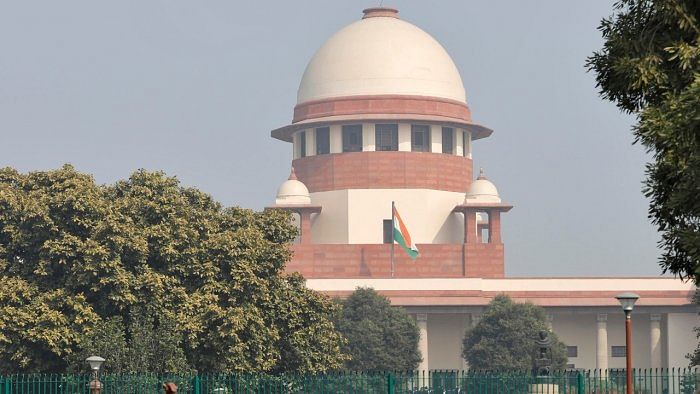
The Supreme Court on Wednesday upheld the validity of stringent provisions of the Prevention of Money Laundering Act related to power exercised by Enforcement Directorate on arrest, search and seizure of ill-gotten wealth, posing a threat to economic stability, sovereignty and integrity of the country.
The top court also declared that supply of a copy of ECIR (Enforcement Case Information Report) in every case to the person concerned or the accused is not mandatory, if Enforcement Directorate at the time of arrest, discloses the grounds of such an action.
A bench of Justices A M Khanwilkar, Dinesh Maheshwari and C T Ravikumar, however, left the question whether some of the amendments to the Prevention of Money-laundering Act, 2002 could not have been enacted by the Parliament by way of a Finance Act, for examination before a larger seven-judge bench.
The top court also held that the ED officials are not police officers so the statements recorded by them under Section 50 of the Act are not hit by Article 20(3) of the Constitution, which provided a fundamental right against self-incrimination. The punishment of fine or arrest for giving false information cannot be construed as a compulsion to give statement. Section 50 procedure is in the nature of an inquiry, not an investigation, it said.
"The process envisaged by Section 50 of the 2002 Act is in the nature of an inquiry against the proceeds of crime and is not “investigation” in strict sense of the term for initiating prosecution," it said.
The bench also said classification or grouping of offences for treating the same as relevant for constituting offence of money laundering is a matter of legislative policy and the court would not have a second guess at it.
"The fact that some of the offences may be non-cognizable offences under the concerned legislation or regarded as minor and compoundable offences, yet, the Parliament in its wisdom having perceived the cumulative effect of the process or activity concerning the proceeds of crime generated from such criminal activities as being likely to pose threat to the economic stability, sovereignty and integrity of the country and thus, grouped them together for reckoning it as an offence of money laundering, is a matter of legislative policy," it said.
The court affirmed the validity of Sections 3 (definition of money laundering), 5 (attachment of property), 8(4) (taking possession of attached property), 17 (search and seizure), 18 (search of persons), 19 (powers of arrest), 24 (reverse burden of proof), 44 (offences triable by special court), 45 (offences being cognizable and non-bailable and twin conditions for grant of bail by court) and 50 (statements made to ED officials).
Importantly, the apex court also upheld the twin conditions for bail as mentioned in Section 45 of the Act, by declaring that Parliament was competent to amend the provision in 2018 even after the top court had in its judgement of Nikesh Tarachand Shah case held those conditions as unconstitutional. The conditions related to an opportunity to prosecutor to oppose the bail and the court having been satisfied on reasonable grounds of the accused not guilty of the offence.
The court passed its 545-page judgement on over 200 writ petitions including former Maharashtra Home Minister Anil Deshmukh, Congress MP Karti Chidambaram and former J&K chief minister Mehbooba Mufti among others.
The court also rejected a contention that the offence of "money laundering" under Section 3 is attracted only if the property is projected as an untainted property.
It held, "Section 3 of the 2002 Act has a wider reach and captures every process and activity, direct or indirect, in dealing with the proceeds of crime and is not limited to the happening of the final act of integration of tainted property in the formal economy."
In its judgement, the court asked the Centre to fill up vacancies in PMLA Appellate Tribunal, an expert body creates to deal with matters concerning attachment, possession and confiscation and vesting of property in the central government, so that the aggrieved persons do not have to rush to the High Court on every occasion.
